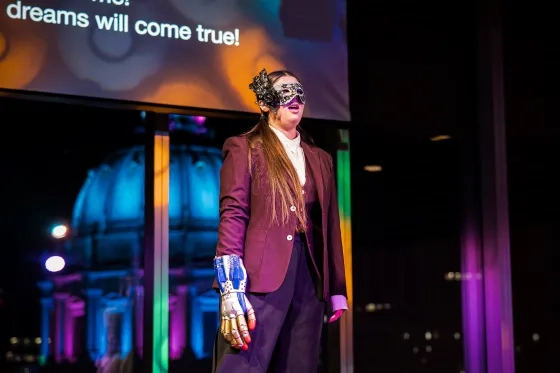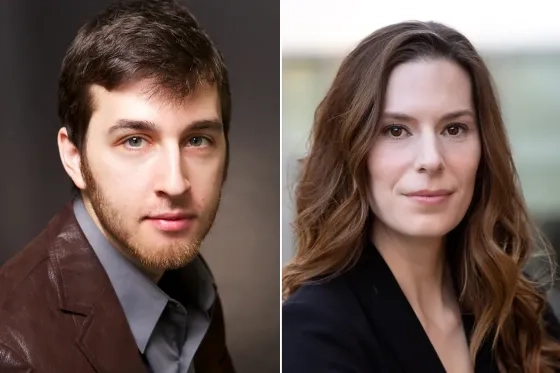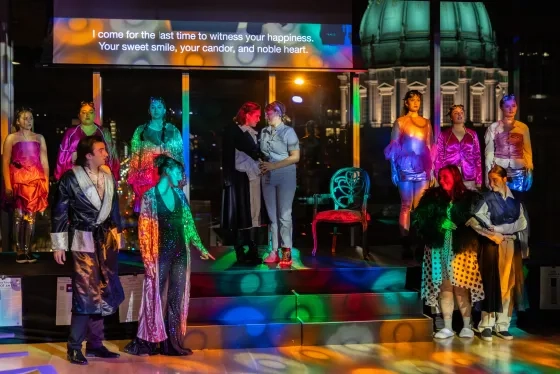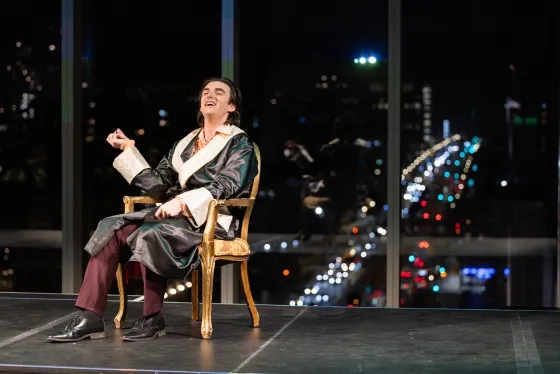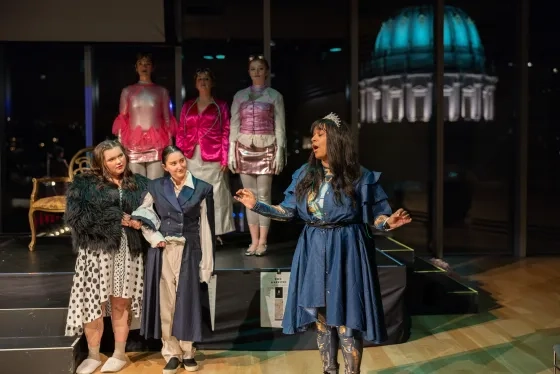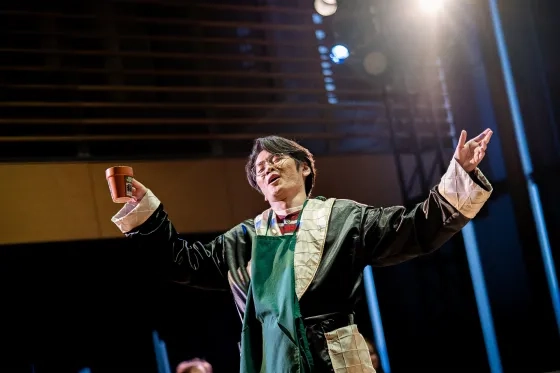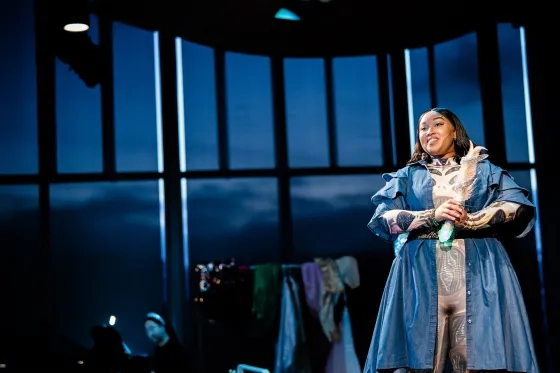A New Twist on an Old Classic: SFCM's 'Cendrillon' Brings Cinderella to the 21st Century
The sold-out, in-the-round staging of Pauline Viardot's salon opera also featured an intermission tasting by alternative-protein company Planetarians.
It's hard to find a more topical update to Cinderella than one with nods to AI and climate change, and SFCM's spring 2024 chamber opera Cendrillon raised that bar significantly with its sold-out April show.
Helmed by Opera/Musical Theatre Professors Sergey Khalikulov and Dana Sadava (musical director), Cendrillon was originally written by Pauline Viardot in 1904, with Khalikulov (SFCM's Assistant Director of Opera and Musical Theatre) and Sadava choosing to update the setting to the year 2050.
Morgan Wolfe, one of the students cast in the title role, admits, "Initially I was kind of hesitant because I was like, 'Why am I a cyborg?' But I think that the world that Sergey's built and the immersive, in-the-round way the show is staged is a really smart way to realize these ideas."
Wolfe added, "This was also my first time really getting to do a principal role in another language, and the music is so beautiful, you can tell Viardot knew the voice and how it worked. I've had so much fun with the costumes and inhabiting the world and character."
"The thing that strikes me about the story and the music is that both are so timeless," Sadava says. "They are both just so simple, exquisite, and lovely, and that's why they can adapt to any setting, and in our case, to 2050."
"This is a salon opera," Khalikulov says, "so it was always meant to be done in a room, not on a stage. Because of that, we thought, 'Well, let's make it immersive. Let's have the audience sit in the round.' The audience was on three sides of the action and the students got the ability to be up close and personal with people sitting there."
Khalikulov, a bass-baritone who received his Master's and post-grad at SFCM, continued: "I really want these students to have this experience because, when you graduate, you get put in these exact situations. I've done shows like that where I'm in a restaurant and I'm sitting down at people's tables while they're eating, and you have to go for it."
The staging highlighted Khalikulov's interpretation of the classic Cinderella tale. "It's about empathy: How do we have empathy for people who don't treat us well? I've always thought about technology in this way—how do we have empathy for technology? How do we see through the technology to the people who created technology like ChatGPT or OpenAI, whether we like it or not?"
Consequently, this may have been the only staging of the classic in which Cinderella speaks to both a robotic bird and a vacuum cleaner. But those are hardly the only 21st-century nods Khalikulov included. The show included an intermission tasting by Planetarians, an alternative-protein company based in the Bay Area, which ultimately wound up getting the show promoted as part of San Francisco's Climate Week, helping to bolster crowds for its sold-out performances.
Part of Sadava's role was recasting and updating the music for the students. Two of the three male roles were converted into female voice roles, and some of the cast play non-gender-specific characters. "It was a perfect piece for our students," Sadava said. "They had to sing as an ensemble, and learn how to interact as an ensemble. When it's set in a modern context, I think they feel a lot more free to interact with props and each other, as opposed to setting something in the 19th century and being told, you know, to wear a petticoat and use gestures and affects that are more foreign to them. Having them create this modern world with their own gestures and their own relationship to the technology went beautifully with the ensemble nature of the music."
One particularly timely touch was filling the space Viardot left for an audience-participation piece with a composition by Jarron Carlson, a second-year Master's student whose final recital at SFCM took place the week after Cendrillon. Other SFCM guest-stars for the evening were SFCM faculty members Indre Viskontas (also an alum), Carl Nagin, and former TAC (Technology and Applied Composition) faculty, composer Mike Morasky, who took place in a panel discussion, joined by DJ Victor Tapia and City College of San Francisco faculty member Darren Keast.
"Integrating all of these different fields, my hope is that the students see that the world is much bigger than this small bubble that they live in," Khalikulov says. "It's not that what they do isn't important, but how can we synthesize all the things all the time? How can we use outside influences to inspire us to make art for the betterment of all of us?"
Learn more about studying opera and musical theatre at SFCM.
